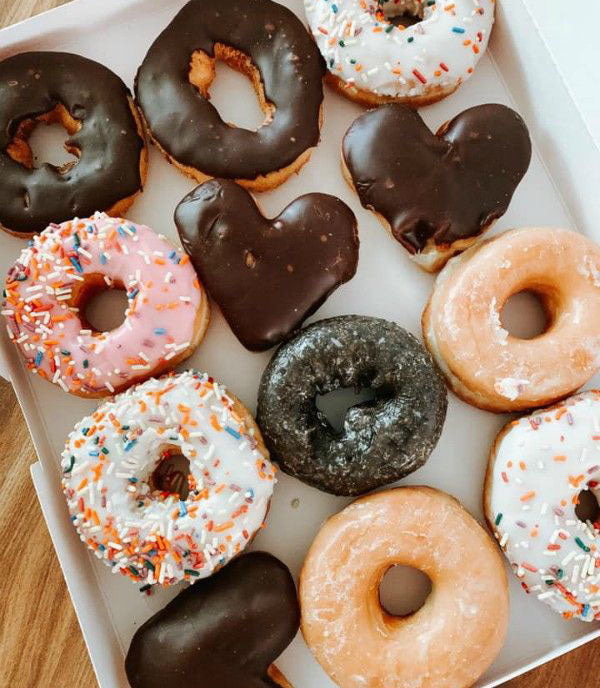
How to Curb Your Cravings
Share
I'm sure you can relate to the feeling, and you’re certainly not alone, because most people experience food cravings from time to time.
While there is absolutely nothing wrong with reaching out for your favourite foods, problems start when the desire for having these foods gets out of control and compromises your nutrition, particularly if you're working towards specific goals.
Our Move With Us dietitians are here to help you understand why these cravings happen, and share their strategies to get them under control.
The compensation myth
You may have heard the myth that food cravings are a hint from your body that you're requiring specific nutrients, but, it doesn’t quite work this way.
Cravings actually have very little to do with nutritional gaps or deficiencies. Do you ever really find yourself craving a salad if your veggie intake has been lacking?
Rather, many people crave 'energy-dense' or higher-calorie foods that aren't exactly bursting with beneficial nutrients.
Why do we crave certain foods?
There's a number of reasons for craving specific foods, ranging from physiological to purely emotional. Even the nutritional makeup of some foods can make them much more desirable.
Do you a massive sweet tooth? Research shows that sugar-rich foods prompt our brain to produce feel-good endorphins, which temporarily make us feel super happy and relaxed. These effects make us reach out for sweet foods more often to seek a sense of pleasure and satisfaction, even if it’s not the most nutritious choice.
For this same reason, many food cravings are tied to an emotional connection, and feelings of stress or happiness can provoke cravings and make you reach for comfort foods.
The power of habits also play a big role in cravings, for example, if you’ve been having a few rows of chocolate every night, chances are you'll start to crave it when you break the ritual. Television and online advertising also feed into this by bombarding you with appetising imagery to signal to your brain that you want it.
Hormonal fluctuations are also something that can play a part in cravings for women. Particularly hormonal changes during the luteal phase of the monthly cycle have been linked to cravings for sweet-tasting and fat-rich foods. While not every single woman experience these cravings, they're not rare either.
Unfortunately, simply knowing the reasons behind food cravings isn’t always enough for managing them, so here are some of the best strategies to keep them at bay.
How to harness food cravings
We can’t stress it enough that there are no “bad” foods that you should avoid entirely. However, if you find that reaching for certain foods in excess is hindering your progress and the cravings occupy your mind more than you’d like, try our five tips below.
1. Focus on nourishing your body
Many of us are very fortunate to have easy access to a wide variety of food options at any given time, even at the click of an app now, but this has not always been the case. Once upon a time we had to forage, hunt and search for our food, and it was common to go hungry for a while when supplies got scarce.
So naturally, our brain is wired to reach out for those sweet, high-fat and energy dense foods, and makes it feel satisfying when we do so.
Conscious planning is an effective solution to this. When your nutrition is based on the 80/20 concept of having whole foods 80% of the time and including 20% soul foods, this sense of balance is enough to satisfy your cravings.
2. Ensure you’re eating enough
If you’re constantly feeling irritable and generally unsatisfied after eating so you keep reaching out for snacks, it’s entirely possible that your overall calorie intake is not sufficient for your body's needs.
This is a sign that it's time to review your overall approach to nutrition and ensure you’re fuelling your body appropriately for whatever goal you have - being that fat loss, muscle gain, or anything in between.
3. Get enough sleep
Did you know that sleep deprivation can make us more munchy? When you lack sleep, the decision-making activity in your brain is affected, and the
brain pathways that respond to rewards get overstimulated, making delicious treats seem much more attractive.
It's incredibly important, not just for curbing cravings but for your overall health, to ensure you’re getting around 7-9 hours of quality sleep every night.
4. Work on your stress management
We know that leading an entirely stress-free life is not realistic all the time, but managing your stress levels is so important for both your physical and mental health. Among other negative effects, elevated stress levels can lead to emotional eating patterns which can be hard to shake off.
If you find yourself excessively eating when you're under pressure, it’s time to work on your stress management techniques and make your emotional wellbeing a priority.
5. Be mindful of your hormones
If you're prone to cravings around certain phases of your cycle, then pre-planning and having an awareness of your cycle will be great helpers for you.
If you suffer from severe PMS symptoms or other conditions that may influence your monthly patterns, it’s always a good idea to check-in with your doctor and discuss some management options.
The best solution to get your food-hankerings under control is to surround yourself with predominantly nutritious foods, while still incorporating portion-controlled amounts of your favourite delicious foods.
To enjoy a balanced approach to nutrition through flexible dieting and customised Meal Guides, kickstart your journey with a 7 day free trial of the Move With Us App today.
